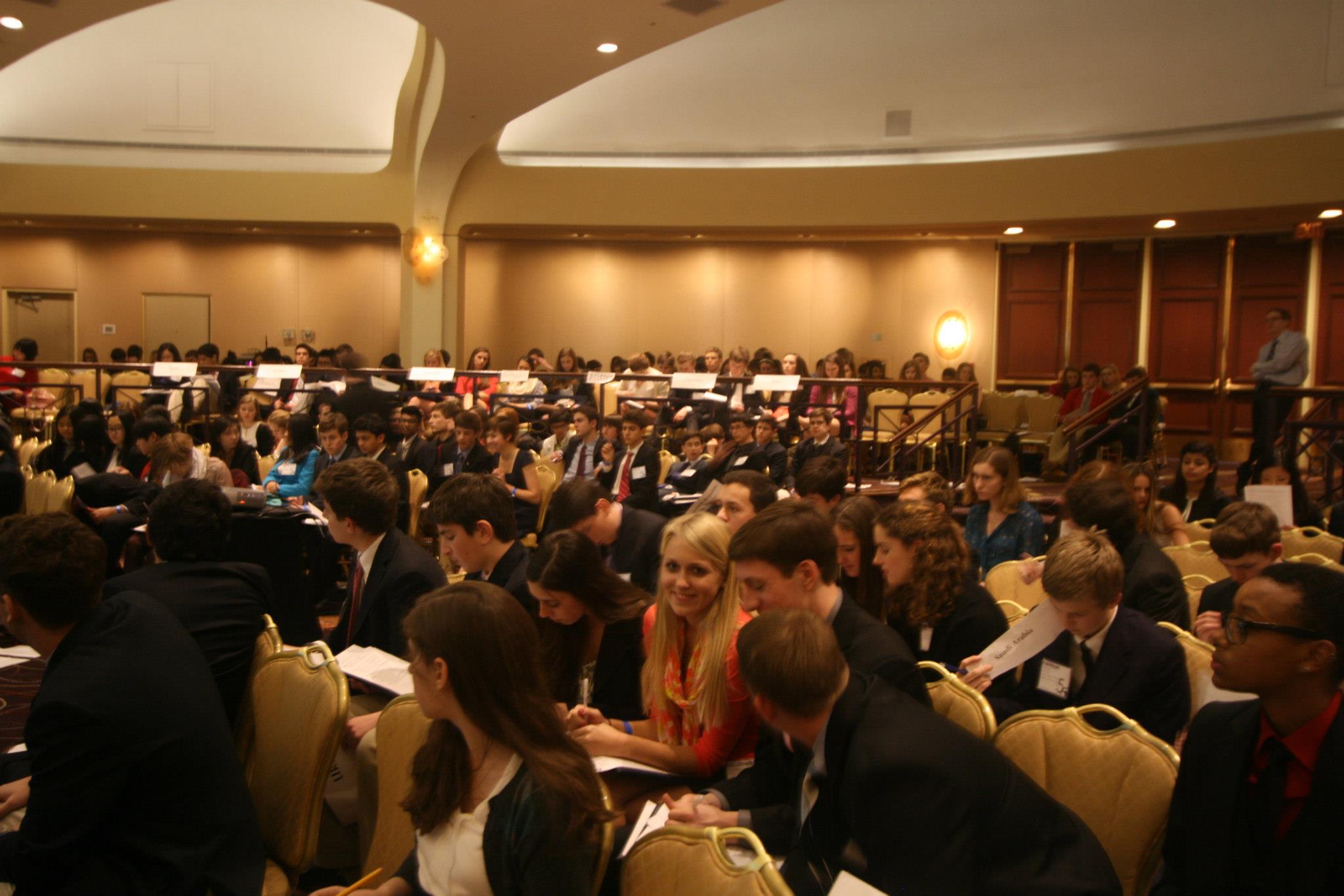This is the first article in our NAIMUN Featured Series. For more information on the series, check out our kickoff article!
While the NAIMUN conference takes place over President’s Day weekend, planning begins almost a year earlier. After deciding on a vision for the conference and picking a Senior Staff, conference executives tackle on the of the most pivotal parts of any conference’s planning: the selection of staff and committees. How does the staff choose 38 committees from a pool of almost 100 options?
First, the Secretariat considers the educational value of a simulation. Model UN committees, especially at the high school level, should always have educational value and as a rule, NAIMUN does not run fantasy committees. Rather than limiting educational value to factual accuracy and historical rigor, NAIMUN committees force delegates to ask “so what?” Ideally, each delegate should come away from committee being able to summarize it in a 1-2 sentence lesson about international affairs. Finally, and most importantly, committees must be fun in addition to being substantively rigorous! In late April, NAIMUN’s Secretariat huddles in a room to conduct “Chair Draft.” This process runs just as it sounds, as undersecretaries-general take turn selecting chairs and proposals for their respective organs. For weeks before the process, the Secretariat is subject to intense lobbying from potential staffers, who pitch their committee proposals.
This year’s overall vision for committee selection focused on choosing committees that forced delegates to think about conventional issues in unconventional and realistic ways. The first major committee selection came with the proposal of a return to the independent U.S. National Security Apparatus featured at NAIMUN XLIX. Inspired by renewed efforts by academics nationwide to teach principles of grand strategy to the next generation of leaders, the simulation will explore the foundations of contemporary American foreign policy during the Cold War and the moral and ethical dilemmas faced by all strategists.
Similarly, Renegotiating the ANZUS Treaty will teach delegates how diplomats balance the interests of their government against collective ones in treaty negotiation. Rather than simply exploring normative questions like many human rights-based GAs, the Executive Board of Human Rights Watch will force delegates to consider human rights issues in an environment of scarce resources. In larger committees, the French National Assembly and the Constituent Assembly of Tunisia will force delegates to reckon with the challenges of turning political philosophy into direct action in states undergoing rapid transitions. The UN Millennium Summit, the NATO Washington Summit, and the Conference of Berlin force delegates to reevaluate fundamental principles that guide the international system today with the benefit of some hindsight.
The most intense lobbying for committees came from proposals that did not fit NAIMUN’s traditional simulations. For the first time, NAIMUN chose to run a committee based on alternate history while sticking to its core educational values in the Operation Downfall committee, which imagines a world without nuclear weapons or deterrence. The Winning the West JCC began as a joke between friends but developed into a very serious proposal for one of the first business-based joint crises at the high school level set amidst the backdrop of a rapidly-developing American nation.
Ultimately, Model UN is about teaching future leaders valuable skills while allowing them to tackle complex issues in a fun and engaging way. Rather than viewing the recent push towards nontraditional committees and competitiveness in a bad light, NAIMUN has incorporated the changes without jettisoning the core educational values upon which the activity is based.
For more information on NAIMUN, check out their website and Facebook page!


